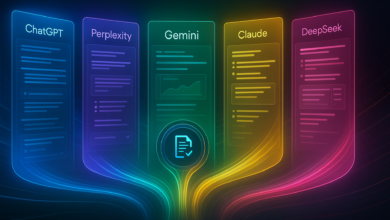Web Developers Revolt Against Google’s AI Overviews

▼ Summary
– Cloudflare updated robots.txt files for millions of websites to pressure Google into changing how it crawls content for AI products.
– This action responds to publishers’ complaints that Google’s AI Overviews reduce their web traffic and revenue by not directing users to original sources.
– Cloudflare’s leverage comes from supporting nearly 20% of the web, giving it significant influence over search results and AI training data.
– AI companies are willing to pay for content but fear Google’s advantage if it accesses content for free while others must pay.
– Google requires websites to allow content use in AI Overviews if they want to be indexed in search results, limiting their ability to opt out.
A significant shift is underway in the digital ecosystem as web developers and publishers push back against Google’s AI Overviews, a feature many claim diverts traffic and revenue from original content creators. Cloudflare, a major web infrastructure provider supporting nearly twenty percent of all websites, has taken a bold step by updating robots.txt files across its network. This move aims to pressure Google into altering how it crawls and utilizes web content for its artificial intelligence initiatives, signaling a potential turning point in how online information is valued and compensated.
Cloudflare CEO Matthew Prince explained the rationale behind this strategic update, known as the Content Signals Policy. He highlighted that publishers relying on web traffic have voiced strong objections to AI Overviews and similar answer engines. These systems often provide direct answers within search results, drastically reducing the number of users who click through to the original websites. This trend poses a serious threat to the revenue models of countless businesses that depend on visitor engagement.
Prince pointed out a critical imbalance in the current landscape. “Virtually every ethical AI firm expresses willingness to pay for content when operating on a level field,” he noted. The central issue lies with Google’s market dominance; if one giant accesses content without cost while competitors must pay, it creates an unsustainable disadvantage for everyone else. This dynamic forces publishers into a difficult position, compelled to allow content usage in ways they might not support under different circumstances.
The backdrop to this conflict involves evolving web standards. Since last year, Google has provided website administrators an option to exclude their content from training its large language models, including Gemini. However, a crucial catch remains: to have pages indexed and displayed in standard search results, sites must also permit their information to fuel AI Overviews. This process, known as retrieval-augmented generation (RAG), pulls data directly from webpages to generate summarized answers at the top of search results, often eliminating the need for users to visit the source.
This development represents more than a technical adjustment, it reflects growing tensions over fair compensation and content ownership in the age of generative AI. As major infrastructure players like Cloudflare leverage their influence, the outcome could reshape how artificial intelligence companies interact with the vast repository of human knowledge available online. The situation underscores a broader conversation about whether current models of content consumption can sustainably support the ecosystems that produce valuable information in the first place.
(Source: Ars Technica)





